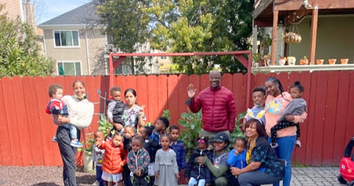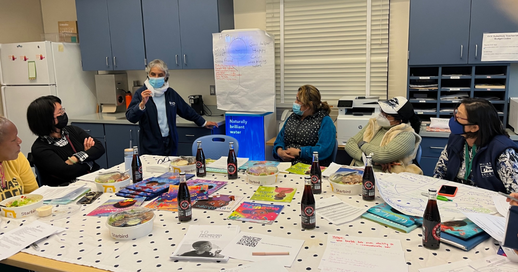 High quality early learning and care opportunities lay the foundation for school readiness. Therefore, connections between school districts and early childhood programs are critical to successful community partnerships that support positive child and family outcomes.  We’ve just completed the fourth year of the Oakland Early Learning Symposium! This year, we focused on our core value of upholding justice and every form of necessary inclusion. November’s Symposium topic was “Partnering with Families of Children with Special Needs.” With over 100 participants in attendance, we heard updates from Theresa Lozach, Oakland Unified School District (OUSD) Special Education and Ben Braun, Regional Center of the East Bay and learned how to connect families to services through First 5 Alameda County’s Help Me Grow program and BANANAS, Inc. Plus, participants had the opportunity to break into small groups with peer facilitators to discuss specific strategies to support children and families. The City of Oakland is in the midst of determining its budget for the next two fiscal years (2023-24 and 2024-25). Mayor Sheng Thao unveiled her $4.2 billion budget proposal on May 3, 2023 and City Council has until June 30, 2023 to pass a final budget. This year, there is a $360 million budget deficit to contend with due to fewer tax revenues and the loss of pandemic emergency dollars. Mayor Thao presented a balanced budget made possible by hiring freezes, strategic reductions, and a proposed reorganization of some city departments.
 OUSD educators participating in a ROCK Professional Learning Community (PLC) OUSD educators participating in a ROCK Professional Learning Community (PLC) Since 2017, through the Resilient Oakland Communities and Kids (ROCK) initiative, Oakland Starting Smart and Strong (OSSS) has been building knowledge about resilience, trauma and its impact on children, and self-care for educators. Examples of ROCK supports for early childhood educators include: in person and virtual trainings, Professional Learning Communities (PLCs), educator coaching, yoga, and self care resources. |
Archives
July 2024
Categories
All
|

 RSS Feed
RSS Feed